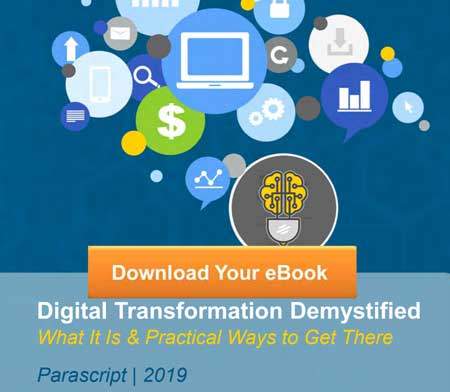Prepare for the Boom in Digital Transformation
Isolation can create benefits far beyond flattening curves. The bubonic plague of 1665 spread rapidly throughout England. Isaac Newton fled Cambridge for his home in the countryside and spent one year in isolation.
In later life, Newton stressed that this enforced absence was the most intellectually fruitful of his whole life.
Freed from the restrictions and rigors of university life, Newton had the time and the space to develop his theories on calculus, optics and the law of gravity.1
Three days ago, I received a text from the NHS informing me that I must immediately quarantine myself for at least 12 weeks. Three months. Eighty-four days. No direct contact with another human; confined to the house; no exceptions.
I have blood cancer and have endured long periods of isolation before, so don’t worry about me. I’ll be fine. But I do worry about our colleagues and friends who are unaccustomed to “house arrest” as a British pundit coined the stay-at-home orders for the general population.
If you’re new to working from home, beware the insidious disruption of newsfeed notifications. Far worse than irritating colleagues at the office who invade your cubicle, notifications will ruin your productivity and spoil your ability to focus on the future. As I worked on this month’s blog, I found it very hard to focus on anything other than the bleak news. Every channel – TV, radio, social media, podcast etc. – is literally bursting with sober, hourly updates.
I came across a quote that has really helped me to lift my gaze beyond the present circumstances. Since you too will likely be in some form of isolation by the time you read this, I offer it as an encouragement to all the isolated digital transformation (DX) pioneers.
“Dedicating energy to planning the future has powerful outcomes. It fosters hope, it reboots confidence and momentum, and it helps besieged minds reorient toward possibility.”2
Make a commitment to disconnect and have a daily planning time. It will keep you sharp. And, as you will quickly learn, it is also essential that you use this time wisely to prepare for the coming DX boom.
The Times, They Are Changing
Writing for Forbes, Robert Wolcott believes the current crisis will eliminate any uncertainty about the urgency of digital transformation: “This is the best opportunity since the global financial crisis of 2008 for businesses to overcome death by incrementalism and make the case for company-wide digital revolution.”3
McKinsey, the management consulting company, predicts no less than a dramatic restructuring of the economic and social order. Summarizing their predictions,
- Institutions that make the most of better insight and foresight will disproportionally succeed;
- Technology adoption will focus on what it takes to drive productivity when labor is unavailable;
- Business leaders need to anticipate popularly supported changes to policies and regulations as society seeks to avoid, mitigate and preempt a future health crisis.4
As DX pioneers, we are all deeply involved in some form of digital transformation project. When we get to the other side of the current crisis, how can you create more and better DX results?
Be Like Ike
Inspired by his isolation story, I came up with some ways we can work from home like Isaac (Ike) Newton:
- Disconnect a while. Newton lived alone for months in his bedroom. The modern equivalent might be disconnecting from the Internet and mobile tower for a few hours a day and finding a quiet place to think.
- Observe patiently. Newton liked to sit in the orchard for hours at a time. One day he was meditating under an apple tree, and well, you know the rest of the story. Take time to patiently observe a process that could use digital transformation. You may have a Eureka moment that has evaded you at the busy office.
- Experiment much. Newton developed his ground-breaking theory of optics after drilling a tiny hole in the shutter, then experimenting for days on end with the beam of light. Try different ways to solve a workflow or data extraction problem. Embrace failures as the measurement that you are making progress.
- Take notes. Newton always took time to rigorously document his ideas and his process of discovery, using the primitive word processor of his day. With all the digital tools at our disposal, this is one area where we can outdo Isaac. Create multimedia presentations of your ideas and collaborate with other isolators.
Hopefully, we won’t need to spend anywhere near an entire year of isolation like Newton. Let’s use the time we do have to innovate the next digital transformation boom. Meanwhile, please stay safe and protect the vulnerable!
—
1 https://www.nationaltrust.org.uk/woolsthorpe-manor/features/year-of-wonders
2 Glenn Cole, co-founder of 72andSunny, Ad Week website, March 22, 2020. tinyurl.com/rj56c5k
3 Robert Wolcott, We’ve Crossed the Digital Rubicon, Forbes website, March 24, 2020. https://tinyurl.com/s77o93g
4 Kevin Sneader and Shubham Singhal, The Path to the Next Normal, McKinsey website, March 2020. tinyurl.com/w3m5slf
###
Other relevant articles that focus on digital transformation include: is the document dead with DX; what digital transformation means; digital transformation and its document automation challenge; prioritizing processes in the DX journey; using a document automation Proof of Concept (PoC) to drive transformation; and whether the focus on document automation should stop at paper. You also might find this eBook interesting.





